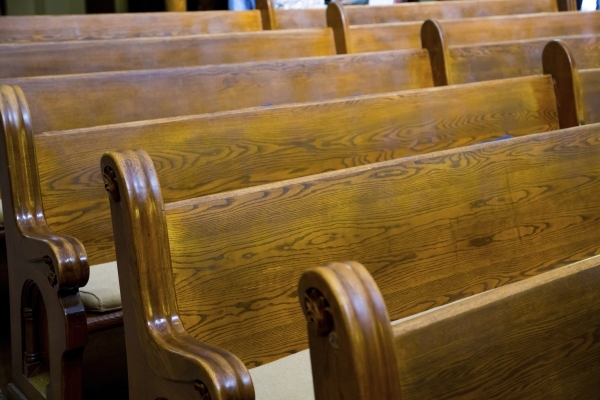Does college make people less religious?
New research from sociologist Philip Schwadel of the University of Nebraska-Lincoln has found in many religious countries, like the U.S., Italy and Mexico, people lose their religiosity upon attending college.
Not surprising, right? You’ve likely heard that before.
But the study also found that people in one-fifth of the world’s countries — like New Zealand, Sweden, Russia and South Korea — who attend college are more likely to stay religious and even join a church, according to phys.org.
"The results illustrate considerable cross-national differences in both the impact of higher education and the social significance of religiosity," Schwadel told phys.org. "In some nations, the highly educated are less religious than other citizens, in other nations they are more religious."
To find this, Schwadel reviewed survey answers of more than 46,000 people from 39 countries about people’s religious beliefs and activities, according to phys.org. College proved to have a “positive effect” (meaning it inspired students to find religion) in nine countries, whereas 18 countries had a “negative effect” from college (it didn’t encourage them to find faith) and 12 countries showed neither negative or positive effects from religion, according to phys.org.
The study focused on mostly Christian nations. About 4 percent of those surveyed were Muslim and 2 percent were Buddhist, according to phys.org.
"Although the non-Christian nations in the sample did not unduly influence the results, this may change with a more diverse sample, particularly since there are generally higher levels of religious practice and belief in majority Muslim nations," Schwadel told phys.org.
The study’s findings about the United States aren’t surprising, since it’s long been reported that highly educated Americans often step away from religion. Research has found that people in the U.S. with high IQs and test scores are less likely to be religious, according to Christianity Today. This is based off an analysis of 63 studies about religion and intelligence from the last 80 years, Christianity Today reported.
But this common-held belief has started to change stateside. In fact, a 2014 study found that young, well-educated Americans don’t shy way from religion, but rather embrace it, according to The Atlantic.
"The core finding is that the association between graduating from college and religious disaffiliation has changed drastically across generations," Schwadel, who also researched the 2014 study, told The Atlantic.
In fact, for those who were born in the 1960s, “there’s really no difference between the college-educated and the noncollege educated in terms of their likelihood of disaffiliating from religion,” Schwadel told The Atlantic. Those who were born in the 1970s and attended college were more likely to stay religious, too, The Atlantic reported.
The reason college students have become religious may be because of their values. Schwadel’s 2015 research on religion in different countries showed that students who stayed religious after college often did so because they tended “to be more heavily involved in organizations,” which inspired them to join churches and religious groups, according to phys.org.
And, as The Atlantic noted, college students are more likely to start families, marry each other and wait until after they’re married to have babies — all of which are beliefs supported by religion, making it an easier decision to join a religious group.
"College-educated people are joiners," Schwadel told The Atlantic. ”They’re more likely to participate in civic groups, to volunteer in their community. What we’re seeing is this moving into religion, too — not necessarily to hold all these different kinds of beliefs, but at least to participate in a nominal sense."






















